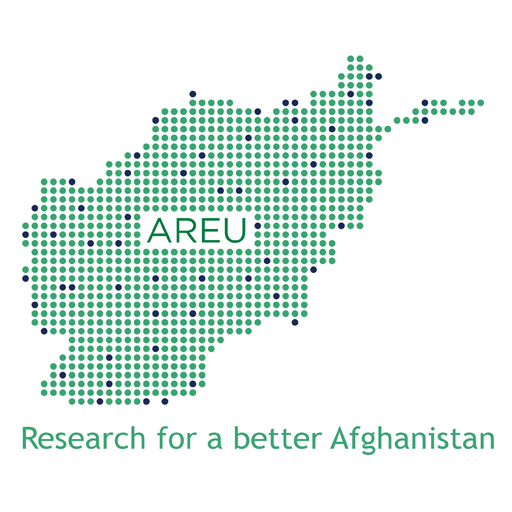
28 May AREU Event Brief Surface-groundwater Interaction in the Kabul Region Basin
The Afghanistan Research and Evaluation Unit (AREU) organized a virtual event on 18 May 2020 to discuss the findings and policy recommendations of its recent research issues paper, “Surface Groundwater Interaction in the Kabul Region Basinâ€. This paper was authored by PhD candidate Najibullah Sadid, and generously funded by the European Union (EU). It is part of the EU’s three-pronged research effort into essential areas of Natural Resources Management (NRM).
Over 35 technical officials, representing the Afghan Government, national and international organizations and civil society organizations, attended the event and thoroughly discussed the paper's findings, its policy recommendations and the research methodology. The virtual event aired live via AREU’s Facebook page and was viewed 440 times with around 328 engagements during the presentation. 
AREU Director, Dr Orzala Nemat, kicked off the event and emphasized the need for the formation of a forum to address and coordinate water-related issues and activities at a national level. Mr. Hamid Helmandi, Chief Advisor to the President in Agriculture and Development, thanked AREU for leading the research and deemed it very important and time appropriate. He talked about the need for measures to be in place to ensure retention of water flow and to keep topsoil from washing away.
Mr. Helmandi added that historically not much has been done with regard to the water issue despite it requiring much attention. He stated that he is against building concrete support walls on the rivers banks because they prevent recharge of the groundwater. He further said that pollution is one of the main issues that needs to be tackled. He emphasised that we very much pollute our waters and this issue should be addressed in future research.
Mr Sadid, the main author of the paper, presented a summary of his study, explained all aspects of the research and its limits and answered several questions raised by the participants who were senior technical government officials in the water sector, academic experts and some general viewers.
The paper quantifies the groundwater recharge rates in central Kabul, upper Kabul/Paghman, Logar, Shamali and Panjsher sub-basins. The study applies three approaches such as basin-scale water budget balance, river reach length water balance and groundwater mounding, using Hantush’s groundwater growth equation to estimate the water surplus/deficit, transmission losses through riverbeds, and groundwater recharge rates, respectively. To utilize the limited recharge period, this paper recommends policy changes including in urban planning/town planning, adapting water-permeable pavements, having river training works allowing optimal bank filtration and establishing additional recharge basins for surface and subsurface recharge.
Over the past two decades, groundwater — as the primary water supply source for Kabul residents — has been exploited extensively, causing large drawdowns. The imbalance between groundwater recharge and groundwater use is considered to be a key driver for the extreme decline in groundwater. On the other hand, the rapid increase in urbanization has further limited the marginal share of groundwater regeneration from the surface; hence, the rivers and streams remain the main sources for recharging groundwater.
Dr Nishank Motwani, AREU Deputy Director, who was facilitating the meeting, stated that technicalities on groundwater is one aspect of the discussion, but the other part of the discussion is how we can all contribute to the better management of groundwater? He emphasised three points. First, that evidence-based research is needed to do any kind of policy planning and interventions. Second, results and findings need to be context specific given the diverse range of factors at play, meaning that policymakers should be cautious about generalising solutions. Third, that more research is needed particularly where evidence is lacking, data is poor, insufficient or where it does not exist before designing and rolling out interventions. An evidence-based approach is particularly important in the context of climate change, water scarcity, and unregulated development that is adversely affecting groundwater recharge.
In reply to a question by Professor Mohammad Naem Iqrar, Mr Sadid stated that the quality of water has not been taken into consideration in this research, because our focus was on the quantity of water as we wanted to study interaction between groundwater and underground water and through this, we wanted to study the recharge rate. He added that the quality of water is a hot issue in Kabul and it requires more research and some work related to it has already been carried out by other organizations.
In reply to another question about what should be used as a recharge source, Mr Sadid stated that if the recharge source of underground water is based on the groundwater, despite its low quality, the upper layer of the ground causes filtration. However, if we have recharging wells then the quality of groundwater is very important, because recharging wells take groundwater and inject it into aquifers and if the quality of groundwater is poor then it will pollute the underground water which may have originally been of good quality.
In reply to a question by Mr. Sayed Sharif Shobair, Mr Sadid said that the underground flow is a completely different topic that we are not investigating here as it requires a totally other approach. He added that what we have investigated here is how much water a river feeds to groundwater, but not what is flowing, basically, underground along the river. He noted that this is a pertinent topic for future research.
Click here to see the full report.
Full Event Video is Available

